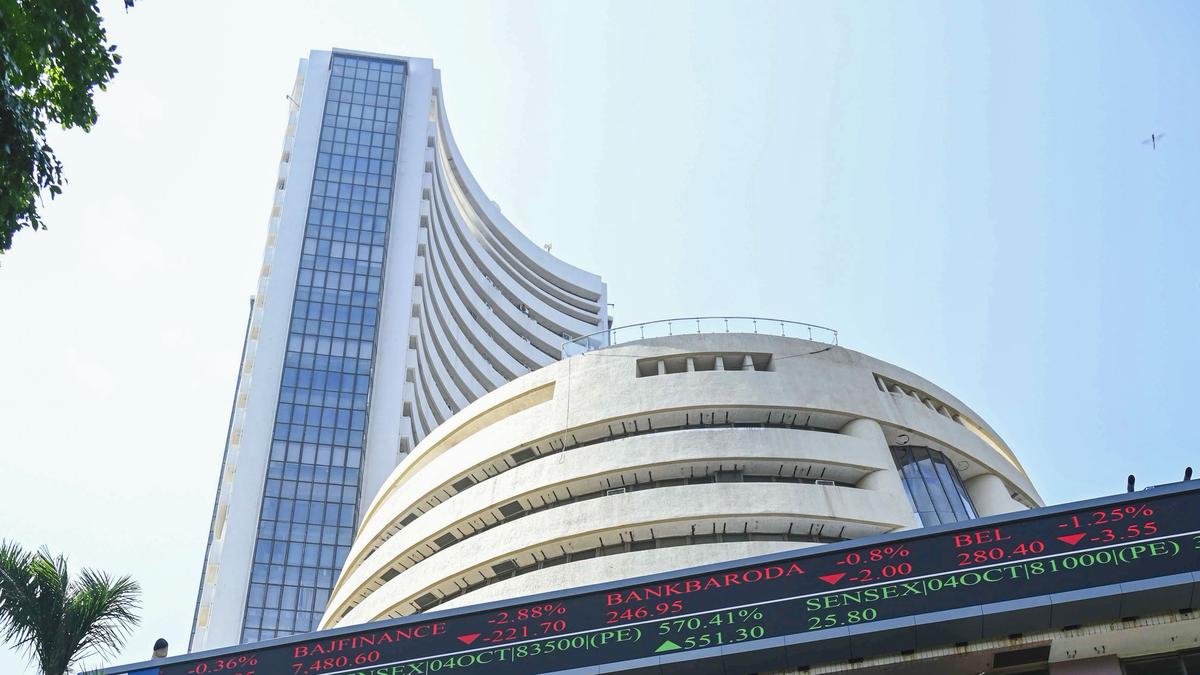
Sensex, Nifty fall over 2% on war fears, curbs on F&O trading
The Hindu
Equity market indices plunge over 2% due to global tensions, SEBI regulations, and weak sentiment, impacting sectoral indices.
Equity market indices on Thursday plunged more than 2% – their worst decline in nearly two months – owing to a weak global sentiment amid escalating geopolitical tensions in West Asia and concerns about reduced trading volumes in the broader market following new regulations by SEBI for the F&O segment, analysts said.
The S&P BSE Sensex fell 1,769.19 points, or 2.10%, to 82,497.10 points. The fall in Sensex was led by L&T (-4.18%), Axis Bank (-4.12%), Tata Motors (-4.08%), Reliance (-3.91%), Maruti (-3.90%) and Asian Paints (-3.88%0. JSW Steel was the only gainer.
The NSE Nifty-50 index, too, slumped 546.80 points, or 2.12%, to 25,250.10.
Ameya Ranadive, Chartered Market Technician, CFTe, Senior Technical Analyst, StoxBox, said the fall was driven by weak global sentiment amid escalating geopolitical tensions and disappointing domestic data, including lower GST collections and a dip in Manufacturing PMI. “Traders reacted to the government’s appointment of three new external members to the RBI’s monetary policy committee and new SEBI rules to curb speculative trading in derivatives,” he said.
Broader markets mirrored this downturn, with Midcap and Smallcap indices also declining. All sectoral indices were in the red, particularly Nifty Realty, which dropped 4.3%, and Nifty Auto and Oil & Gas, both down over 2%. Mr. Ranadive said the market sentiment remained pessimistic, reflected in all sector indices closing in the red, with the realty index being the most impacted.
Vinod Nair, Head of Research, Geojit Financial Services said, “The domestic market took a sharp downturn following Iran’s launch of ballistic missiles at Israel, sparking fears of retaliation and escalation in war.”
“This could potentially drive-up oil prices and lead to inflationary pressures. Additionally, new SEBI regulations for the F&O segment have raised concerns about reduced trading volumes in the broader market. Lastly, with attractive valuations in China, FIIs have redirected their funds, adding pressure on Indian stocks,” he added.











